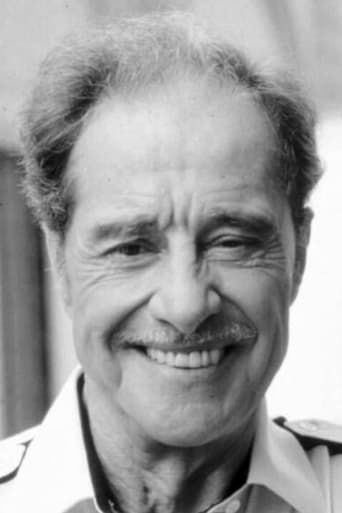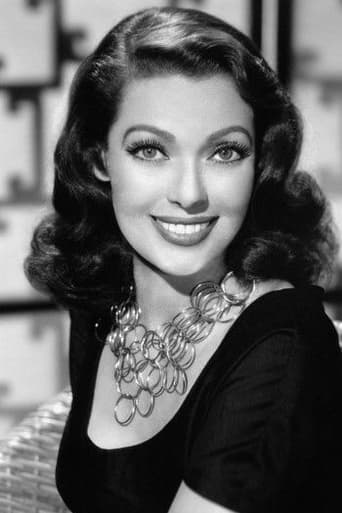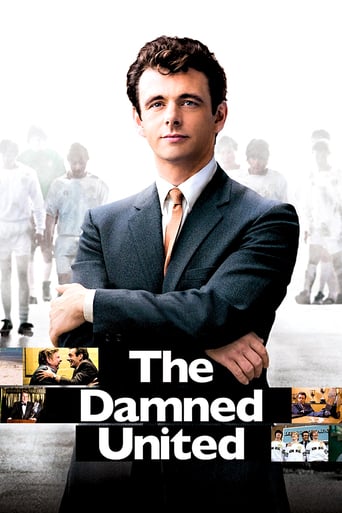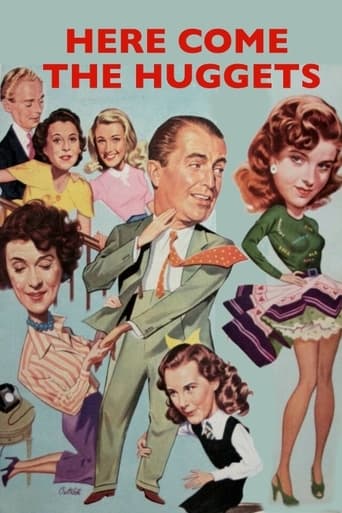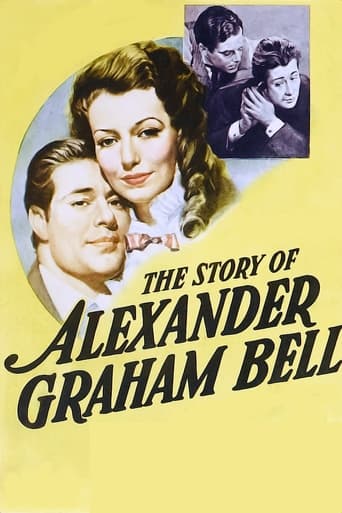

The Story of Alexander Graham Bell (1939)
Alexander Graham Bell falls in love with deaf girl Mabel Hubbard while teaching the deaf and trying to invent means for telegraphing the human voice. She urges him to put off thoughts of marriage until his experiments are complete. He invents the telephone, marries and becomes rich and famous, though his happiness is threatened when a rival company sets out to ruin him.
Watch Trailer
Cast


Similar titles
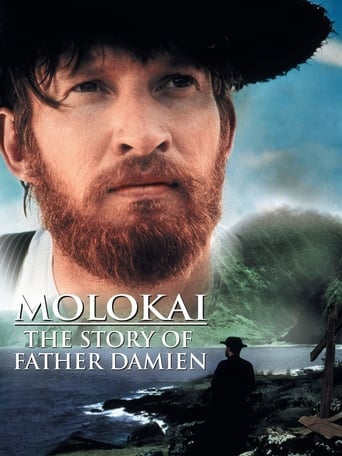
Reviews
This is a very entertaining biopic of the inventor of the telephone starring the great Don Ameche as the title character, Loretta Young, a very young Henry Fonda and Ameche's "Heaven Can Wait" co-star Charles Coburn, all of whom give excellent performances. Don Ameche is one of my favourite actors. Watching him in a film, whether he's in his 30s or in his 80s, is the cinematic equivalent of wrapping myself in a warm blanket on a cold night. He is like Gregory Peck and Christopher Reeve in that respect.It's fictionalised in parts - for instance since Bell only went to Canada (and later the US) in his 20s, he should really have a Scottish accent - but I think that it's fairly accurate for the most part. Bell's two daughters Elsie - who is depicted in the film as a baby - and Marian were still alive when it was released. I wonder if they saw it and what they thought of it. The film was so popular that "the Ameche" was a widely used slang term for the telephone throughout the 1940s.
1939 was indeed a magical year for Hollywood, and this classic biop of one of American's most celebrated inventors during his most interesting period is one of the less remembered highlights. I was very surprised at the rather few reviews at this site, compared to the several hundred reviews of "The Grapes of Wrath", released the following year. Both were shot in high quality B&W. Although it much simplifies, and often grossly fictionalizes, the details relating to the invention of and subsequent patent battles relating to the first practical telephone, it definitely succeeds as a vibrant theatrical presentation of Bell and his associates during this exciting time period. Bell makes a particularly appealing subject for this sort of film because of his primary interest, during this period, in teaching the deaf(including his future wife) to communicate by visuals and speech training(although he was very opposed to a special sign language!). Also, his status as a poor(overly emphasized) lone inventor, trying to scoop some well financed competitors.Ironically, the invention of an auditory means of instantaneous long distance communication served to further isolate the deaf from mainstream society, being at least partially dependent on visual communication. The profoundly deaf would have to await the advent of relatively cheap FAX machines and PCs to participate directly in relatively fast long distance communications, other than using the telegraph...The viewer should also be aware that it was Tom Edison's subsequent invention of the carbon-based transmitter-receiver that finally provided clear speech over long distances, and thus greatly increased the utility of the telephone. The casting was near perfect. The classy, infectiously hyperactive, Don Ameche and gorgeous, always empathetic, Loretta Young had played husband and wife before, in "Ramona", and were a very charismatic match in this film. Loretta mostly just had to look lovely, supposedly learn to communicate using lip reading, and be continuously supportive of Bell's 'crazy' inventive obsessions. Having her real sisters play her stage sisters was a nice embellishing touch.Some complain that Ameche constantly grossly overacted. But, to me, his hyperenthusiasm about whatever he was doing translated into greater interest in the film proceedings. He personifies the obsessive enthusiasm of the inventor or scientist who feels he is on the verge of a great discovery, as well as the dogged determination of the healer, who feels his efforts make a life-changing impact on his patients.Just as Dr. Watson was indispensable to Sherlock Homes. and Jim Watson partnered with Francis Crick in figuring out the structure of DNA, young(20-22y.o) Tom Watson was hired to make Bell's experimental efforts at an improved telegraph and telephone. Bell was not mechanically gifted, thus required such a person to make his ideas a practical reality. Some complain that Henry Fonda's Watson was too much the opposite of Ameche's hyperenthusiatic, sometimes nearly hysterical, Bell: laconic, frequently complaining and pessimistic. However, theatrically, Fonda's Watson serves to help balance Ameche's Bell, giving the audience a respite. He also served to articulate the many frustrations and sacrifices typically involved in trying to invent something revolutionary.The very familiar character actors Charles Coburn and Gene Lockhart play their usual roles as mature authority figures, serving as Bell's reluctant source of financing during this period, Coburn also playing Bell's future father in law. They are later characterized as risking their entire fortunes in financing Bell's patent war. Thus, they also achieve the status of heroes in this film. There is a villain in this story, in the form of competing inventor Eliza Gray and his supporting corporation :Western Electric, who file a patent infringement suit against Bell's fledgling company. Both filed a patent for very similar devices on the very same day, thus the assumption is that one must have stolen the idea from the other, but who did the stealing? Things look bad for Bell during most of the trial, but it's resolved in fictitious melodramatic style when Loretta unexpectedly reads a dated love letter from Bell to the court, then, oh, incidentally, reveals that it was written on the back of a diagram of his key thinking and breakthrough apparatus. Historically, Eliza Gray was no villain, but a competent inventor of other things. This trial segment afforded Ameche the opportunity to articulate a memorable impassioned plea not to allow well-healed corporations to bully poor individual inventors into giving up legal credit for their inventions. This speech reminds me of a number of other impassioned speeches in films of this era, such as those of Paul Muni , when playing Louis Pasteur, or Emile Zola, and Spencer Tracey, when playing Henry Stanley, or defending Clark Gable's character in "Boomtown", for example. Granted that this film was mainly about Bell's invention of a telephone. However, Tom Watson's essential contribution to this invention has been consistently downplayed, although the easy going Watson never seemed to care. Watson was actually much like Bell in that he easily got bored with a given lifestyle, thus periodically attempted to shed his skin. After a few additional years making all of Bell's early commercial telephones, he decided to play farmer for a few years, but soon grew bored with that. Then, he began making marine motors, and eventually built his company into the Fore River Ship and Engine company, one of the largest in the US. During a period of financial trouble, he quit this and tried his hand at being a geologist, after study at MIT. Not very successful, he then decided to become a stage actor and playwright, later adding public lectures on various topics, in his declining years. His last celebrated dealing with the telephone occurred in 1915, when he joined Bell in the symbolic first transcontinental phone conversation, thus commemorating their first , accidental, phone conversation in the lab. Incidentally, Bell disputed his claim, dramatized in the film, that this conversation was occasioned by Bell spilling acid on himself.
Our obsession with the telephone.Every trendy invention has a past, and in case of today's outlandish use of gadgets, it began with a dream in 1875. Busy enough creating a form of communication for the deaf and dumb, Alexander Graham Bell (the likable Don Ameche) puts aside his desire to improve the telegraph to create something we now know as the telephone. More complex than two Styrofoam cups and a string, he tries, fails, and finally succeeds. And as always happens, someone comes along to step on his toes, claiming that they had a patent that pre-dated Bell's.As there is always the case in these biography films, there is a lovely young woman, and in Bell's case, it is the deaf Loretta Young, the daughter of one of Bell's benefactors, the imperious Charles Coburn. Cynical against Bell's dreams, Coburn at first stands in their way, but the gentle Gene Lockhart (for once cast against type as a truly likable character) completely supports him as Bell has taken interest in his young deaf son (the adorable Bobby Watson), giving Lockhart a touching Christmas present that is a four hankie moment. In a smaller role, Henry Fonda plays Bell's assistant, Mr. Watson, who is there for the ground-breaking moment.This lavish production features a huge cast of character performers, including Spring Byington (Coburn's dingy wife), Elizabeth Patterson (a cantankerous landlady), Beryl Mercer (the imperious Queen Victoria), Zeffie Tilbury (Lockhart's lovable mother) and Harry Davenport (as the judge in the patent trial). Loretta Young is joined on-screen by her real-life sisters as her character's sisters.Overshadowed in memory because of so many masterpieces released in the same year (1939), it was still Ameche's most famous role among dozens in which he simply held court for leading ladies like Young, Alice Faye and Betty Grable. Ameche's wide-eyed enthusiasm, which has sometimes been mocked, is actually engaging. It is just what America needed in 1939 to remind them after a lengthy depression and the onslaught of war in Europe of the achievements of the past century in the wake of some truly tough times ahead.
This film has a unique place in movie history. The Story of Alexander Graham Bell not only gave Don Ameche his signature role, but Ameche's very name entered the English slang. Still today, a telephone is sometimes referred to as an "ameche."Bell was a Scottish immigrant who came by way of Canada to the Boston area. At the time the film opens, Don Ameche is a teacher of deaf children. He's also employed as a private tutor to one particular child, Bobs Watson who is Gene Lockhart's son. There scenes have a particular poignancy.Ameche also woos and wins Loretta Young, a deaf woman who is the son of prominent businessman, Charles Coburn, who later backs him in his scientific work and business ventures. As you can imagine living in a world with a whole lot of silent people and a natural scientific bent made him curious about sound. In inventing the telephone, Bell sought to break the sound barrier which was then limited by how loud the loudest person could shout. The famous scene with assistant Henry Fonda when Bell's own voice goes over a wire for the first time is there. And his later patent struggles are also well documented. But it is Don Ameche's sincere and straightforward interpretation of Alexander Graham Bell that makes this film memorable. And he's matched every step of the way by Loretta Young as his wife. Ms. Young by the way got to be in this film with all three of her sisters, playing her sisters, a rare treat.Given Bell's lifelong interest in the deaf, I'm sure that today with the invention of TTY lines to help deaf people communicate by phone, he'd be doubly proud of what he had accomplished.A good film and a great tribute to a great scientific and humanitarian individual.


